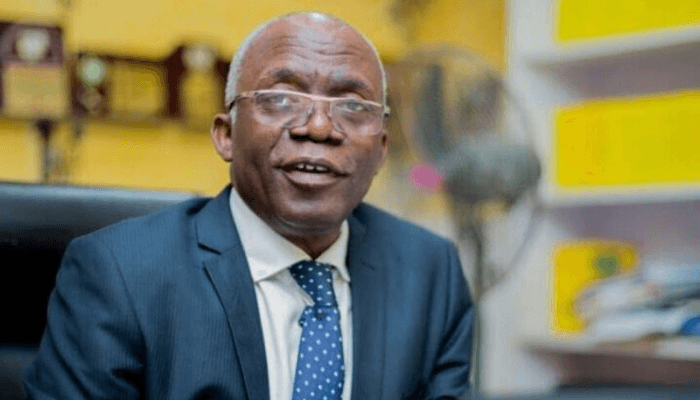News
Femi Falana Calls for Nigeria to Tackle Economic Gridlock by Joining BRICS and Selling Crude in Naira

Popular Nigerian human rights lawyer Femi Falana has thrown down the gauntlet, challenging the Nigeria Federal Government to embrace a paradigm shift in economic policy.
His rallying cry? For Nigeria to join the influential BRICS economic bloc and defy convention by trading Nigerian crude oil in the resilient naira rather than the dominant US dollar.
With the fervor of a seasoned political firebrand, Falana’s message reverberates through the corridors of power, urging a departure from the status quo. He champions economic sovereignty, decrying Nigeria’s reliance on the forecasting and directives of Bretton Woods institutions like the IMF and World Bank as shackles hindering true national autonomy.
But this isn’t merely a political diatribe; it’s a manifesto for change. Falana’s call to arms challenges the entrenched political establishment to break free from the chains of economic subservience and seize control of Nigeria’s destiny.
Speaking on Channels Television’s Politics Today programme on Tuesday he said “There are countries in the world today insisting that we are not going to be tied to the American dollars and those countries are in the BRICS – Brazil, Russia, India, China and South Africa,”
Last August, Vice President Kashim Shettima was at the 15th BRICS Summit in South Africa and he said Nigeria didn’t apply to join the economic bloc considered to be a counterweight to western powers like the United States.
However, Falana believed it was time for Nigeria to join the economic bloc to salvage the naira.
“Others are joining them; Saudi Arabia has joined them. UAE, Ethiopia, Egypt and all that. We cannot be more Catholic than the Pope. If friends of the West are joining BRICS, why are we not there? So that we can trade in naira,” he noted.
The Senior Advocate of Nigeria also said the government is dancing around the problem, saying that the circulars by the Central Bank of Nigeria (CBN) won’t solve the forex challenges.
“If I had my way, my own radical policy would be that: I would sell Nigerian gas and crude oil in naira. Let those who want to buy our products look for naira. That is how to promote your currency.
“But this business of everybody looking for dollars even to pay school fees, rent houses, and sell houses. It doesn’t happen unless you dollarize your economy. These are the issues the government would have to address to come out of this economic doldrums,” he said.
‘Discard IMF, World Bank’s Policies’
Furthermore, Falana urged the Nigerian government to discard the “deleterious policies” of the World Bank and IMF like asking the government to increase electricity tariff and remove whatever was remained of the petrol subsidy despite that the political climate in the country was not conducive.
“There is no society in the world where government does not subsidise one product or the other even in the most advanced capitalist societies. And that is why Nigerians must begin to ask the government to discard and jettison the deleterious programmes and policies of the IMF and the World Bank,” Falana stated.
“The only economic body recognised by the constitution to advise the President is the National Economic Council headed by the Vice President and peopled by the state governors, Governor of the Central Bank and the Minister of Finance.”
He lamented that the government has abdicated its responsibility to the IMF and the World Bank, claiming the Bretton Woods bodies were set up by imperialists.
“It is an ideological battles; these institutions were set up by imperialism principally to destroy the economies of developing nations while they turn their eyes when the other governments are giving subsidies to their people.
“The economies of the United Kingdom, the United States, Germany and other are not collapsing despite that they give subsidies,” he said.
The senior lawyer noted that he would take steps after the expiration of the deadline set up by the courts for government to set up prices of commodities.


















